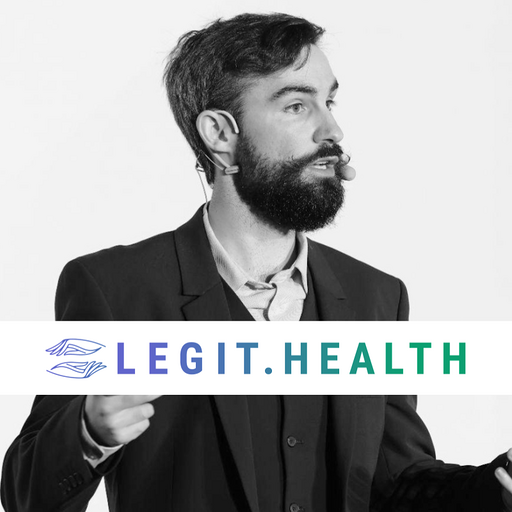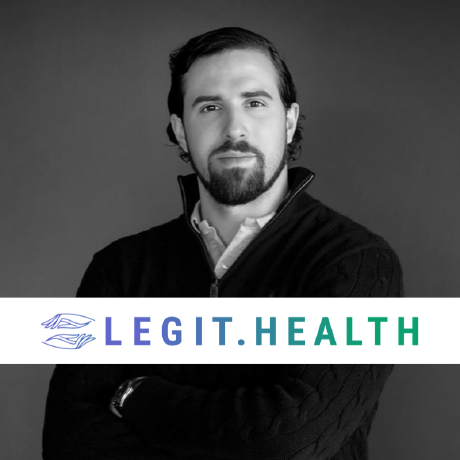7 Wege zur Beschleunigung dermatologischer klinischer Studien mit KI: Schnellerer Database Lock mit überlegener Datenqualität
Im Wettlauf um die Markteinführung neuer dermatologischer Behandlungen zählt jede Woche. Sponsoren klinischer Studien stehen vor der entscheidenden Herausforderung, Zeitpläne zu verkürzen und gleichzeitig die Datenqualität für regulatorische Einreichungen zu verbessern.
Ob Sie ein Pharmaunternehmen, eine Biotech oder eine CRO sind – die KI-gestützte Plattform von Legit.Health liefert das, was wirklich zählt: schnellerer Database Lock, 15% mehr vollständige Daten und regulatorische Datenqualität mit verbesserter Inter-Rater Reliability.
Vor einigen Jahren haben wir einen Blogbeitrag veröffentlicht, in dem wir 7 Wege erklärt haben, wie unsere KI-Technologie dermatologische klinische Studien verbessert. Seitdem haben wir viel aus der Zusammenarbeit mit Pharmaunternehmen, Biotechs und CROs weltweit gelernt. Deshalb haben wir uns entschieden, Ihnen ein Update zu geben.
Hier sind die 7 Wege, wie Legit.Health Ihre dermatologischen klinischen Studien beschleunigt
- 1. Beschleunigter Zentrumsstart: Schnellere Schulung mit überlegener Protokolladhärenz
- 2. Mehr Zentren gewinnen
- 3. Überlegene Datenqualität: 15% mehr Inter-Rater Reliability
- 4. Echtzeit-Monitoring der Zentren: Risiken reduzieren und Aufsicht verbessern
- 5. Schnellerer Database Lock
- 6. Gesamtbeschleunigung der Time-to-Market
- 7. Stärkere regulatorische Evidenz
- Häufig gestellte Fragen
- Zusammenfassung
- Referenzen
Dies ist ein strategischer Überblick für klinische Operationen, Biostatistik, Medical Affairs und Executive Stakeholder, der zeigt, wie KI-Technologie Ihren Weg zum Markt direkt beschleunigt und gleichzeitig Ihr regulatorisches Einreichungspaket stärkt.
1. Beschleunigter Zentrumsstart: Schnellere Schulung mit überlegener Protokolladhärenz
Legit.Health beschleunigt die Zentrumsaktivierung von Wochen auf Tage dank schnellerer Schulung. Die Plattform gewährleistet eine Steigerung der vollständigen Daten und eliminiert Scoring-Variabilität mit automatisierten, validierten Algorithmen. Zentren können früher mit der Patientenrekrutierung beginnen, was direkt Ihren Studienzeitplan beschleunigt und gleichzeitig überlegene Datenqualität für regulatorische Einreichungen beibehält.
Herausforderungen
- Dermatologisch fokussierte Studien erfordern oft spezialisierte Zentren, da Bilderfassung und Scoring (z.B. Schweregrad-Indizes) hochspezifisch sind und Präzision erfordern.
- Manuelle Schweregrad-Scoring-Systeme (PASI, EASI, SCORAD, HiSCR, IHS4, IGA, GAGS, VASI, etc.) sind mühsam und anfällig für Variabilität und fehlende Daten.
- Zentren können Patienten aussortieren oder Daten verlieren, wenn Scoring-Definitionen unklar oder zu zeitaufwändig sind, was die nutzbare Datensatzgröße reduziert und das Risiko von Protokollabweichungen erhöht.
Lösung
Die KI von Legit.Health automatisiert das Scoring mehrerer etablierter dermatologischer Schweregrad-Indizes. Die Plattform unterstützt beispielsweise die automatische Messung von EASI und SCORAD für atopische Dermatitis1 sowie HiSCR und IHS4 für Hidradenitis suppurativa2, SALT für Alopezie, PASI für Psoriasis3 und andere.
Im folgenden Beispiel können Sie sehen, wie die KI von Legit.Health automatisch Akne-Läsionen erkennt und zählt und Schweregrad-Scores in Echtzeit während des Patientenbesuchs berechnet. Dann verifiziert oder passt der Prüfarzt einfach die KI-Ausgabe vor der Einreichung an, was Zeit und kognitive Belastung reduziert.
Echtzeit-Demonstration der KI-Technologie von Legit.Health. Durch einfache Bildanalyse zählt die KI automatisch Akne-Läsionen. Der Prüfarzt kann das Ergebnis bei Bedarf anpassen. Dieser automatisierte Ansatz reduziert die Belastung des Prüfarztes und verbessert die Datenqualität in der dermatologischen klinischen Forschung.
Die Plattform bietet auch Echtzeit-Bildqualitätsbewertung über ihren DIQA (Dermatology Image Quality Assessment)4 Algorithmus, der sicherstellt, dass erfasste Bilder den erforderlichen Standard für den Einsatz in klinischen Studien erfüllen.
Durch die Reduzierung der Belastung von Prüfärzten und Zentrumspersonal, sowohl kognitiv als auch manuell, verbessert die Plattform die Adhärenz an die Protokoll-Scoring-Workflows und reduziert die Wahrscheinlichkeit von unvollständigen oder fehlenden Daten.
Mit weniger verworfenen oder unvollständigen Fällen hat der Sponsor einen saubereren Datensatz, höhere statistische Power und zuverlässigere Endpoints.
2. Mehr Zentren gewinnen
Legit.Health ermöglicht effizientere Workflows, die es Zentren erlauben, mehr Patienten pro Tag zu sehen mit einer Reduzierung der Bewertungszeit. Diese Effizienz zieht Zentren zur Teilnahme an. Schnellere Rekrutierung bedeutet, Ihr Enrollment-Ziel Monate früher zu erreichen, was direkt die Time-to-Market beschleunigt. Darüber hinaus verbessert die Bereitstellung der richtigen Tools für Zentren deren Zufriedenheit und kann wettbewerbsfähigere Budgets sichern.
Herausforderung
- Die Rekrutierung für Dermatologie-Studien ist sehr wettbewerbsintensiv; Zentren wählen oft zwischen mehreren Studien und können diejenigen mit geringerer administrativer Belastung, höherer Unterstützung und weniger zusätzlichen Scoring-Anforderungen bevorzugen.
- Dermatologen sind vielbeschäftigte Kliniker. Die Anforderung, Scoring-Systeme manuell auszufüllen, Bilder auf bestimmte Weise zu erfassen und hochzuladen und zusätzliche Studien-Workflows zu verwalten, kann ein Hindernis für die Teilnahme sein.
- Die Zeit des Prüfarztes ist ein Kostenfaktor für den Sponsor (Zentrumsbudget) und eine Barriere für den Zentrumsstart und die -bindung.
- Sponsoren, die optimierte Workflows und prüfarztfreundliche Tools anbieten, haben einen Wettbewerbsvorteil.
Lösung
Die KI automatisiert das Scoring, sodass Prüfärzte Scoring-Systeme nicht manuell ausfüllen müssen: Stattdessen verifizieren sie einfach die KI-Ausgabe und passen sie bei Bedarf an. Dies bedeutet weniger Zeit pro Patientenbesuch für Studien-Scoring und Dokumentation, was den Prüfarzt freisetzt, sich auf die klinischen Aspekte der Studie zu konzentrieren.
Im folgenden Beispiel können Sie sehen, wie die KI von Legit.Health automatisch Knoten, Abszesse und drainierende Tunnel erkennt. Der Prüfarzt verifiziert oder passt einfach die KI-Ausgabe vor der Einreichung an, was Zeit und kognitive Belastung reduziert.
Demonstration des automatisierten IHS4-Scorings für klinische Studien zu Hidradenitis suppurativa2. Die KI erkennt und klassifiziert automatisch Knoten, Abszesse und drainierende Tunnel und liefert objektive Endpoint-Messungen, die die Inter-Rater-Variabilität reduzieren und regulatorische Einreichungen unterstützen.
Aus Rekrutierungssicht machen die reduzierte Belastung und der optimierte Workflow die Studie attraktiver für Dermatologen, die sonst möglicherweise ablehnen würden.
Neben der Unterstützung eines schnelleren Zentrumsstarts verbessert die Verwendung von Legit.Health das Engagement der Prüfärzte und senkt das Risiko eines Zentrums-Dropouts.
Legit.Health als Teil Ihres Studienprotokolls anzubieten, macht Ihre Studie attraktiver für Dermatologen: weniger manuelle Arbeit, effizientes Scoring, hochwertige Datenerfassung. Dies kann Ihren Pool verfügbarer Zentren erweitern, die Zufriedenheit der Prüfärzte verbessern, Dropouts reduzieren und die Rekrutierung beschleunigen.
3. Überlegene Datenqualität: 15% mehr Inter-Rater Reliability
Legit.Health liefert regulatorische Datenqualität mit höherer Inter-Rater Reliability (85-95% statt 65-75% manuell), mehr vollständigen Daten und 77% weniger Bildqualitätsproblemen. Diese überlegene Datenqualität stärkt Ihre statistische Power um 15-25%, reduziert regulatorische Queries und beschleunigt Genehmigungszeiträume. Jeder Endpoint wird durch Peer-Review-Validierungsstudien unterstützt, die sicherstellen, dass Ihre Einreichung den höchsten regulatorischen Standards entspricht.
Herausforderung
- Manuelle Scoring-Systeme unterliegen Inter- und Intra-Beobachter-Variabilität. Inkonsistenzen in der Berechnung von Schweregrad-Indizes durch Prüfärzte können die Zuverlässigkeit wichtiger Endpoints reduzieren und Rauschen in die Studiendaten einführen.
- Die Bilderfassung (Beleuchtung, Fokus, Rahmung) kann zwischen Zentren variieren, was die Vergleichbarkeit zwischen Patienten und Zeitpunkten reduziert.
- Unvollständige oder inkonsistente Daten (fehlende Besuche, fehlende Scores, schlechte Bildqualität) können Sponsoren zur Datenbereinigung, Imputation oder zum Ausschluss von Probanden zwingen — alles davon beeinträchtigt die Power und erhöht die Kosten.
Lösung
- Das automatisierte Schweregrad-Scoring der KI liefert objektive, reproduzierbare Messungen direkt aus dermatologischen Bildern, was die Variabilität reduziert. Die Forschungsartikel demonstrieren die Genauigkeit und Zuverlässigkeit dieser automatisierten Scores, wie Automatic International Hidradenitis Suppurativa...2, Automatic SCOring of Atopic Dermatitis1 oder Automatic Psoriasis Area and Severity Index...3.
- Die Bildqualitätsprüfung (DIQA)4 stellt sicher, dass Bilder Standardbedingungen erfüllen, bevor sie bewertet werden, was die Konsistenz zwischen Zentren verbessert.
- Standardisierte Workflows zwischen Zentren bedeuten, dass der Sponsor harmonisiertere Daten erhält, was die Analyse vereinfacht, die Variabilität reduziert und stärkere statistische Schlussfolgerungen unterstützt.
- Als Konsequenz wird die Glaubwürdigkeit der Endpoint-Messung erhöht, was die regulatorische und Publikationsqualität der Ergebnisse unterstützt.
Für Sponsoren klinischer Studien und CROs übersetzt sich dies direkt in verbesserte Patientenbindungsraten und besseres Zentrumsengagement. Durch die Reduzierung der administrativen Belastung können Sponsoren Budgets für klinische Studien effizienter zuweisen und eingesparte Kosten in die Erweiterung der Rekrutierung oder das Hinzufügen zusätzlicher Endpoints investieren.
Möchten Sie die klinische KI-Technologie in Aktion sehen?
4. Echtzeit-Monitoring der Zentren: Risiken reduzieren und Aufsicht verbessern
Legit.Health gibt Ihnen Monitoring-Transparenz darüber, wie jedes Zentrum performt in Bezug auf Bilderfassung, Scoring-Vollständigkeit und Protokolladhärenz. Sie können Probleme frühzeitig identifizieren und korrigieren, was das Risiko von Datenverlust, Abweichungen oder Dropouts reduziert. Das Monitoring wird effizienter mit integrierten Analysen, anstatt auf das Ende der Studie zu warten, um Probleme zu erkennen.
Herausforderung
- Sicherzustellen, dass Zentren Bilder korrekt erfassen, dem Protokoll folgen und das Scoring vollständig abschließen, ist oft eine erhebliche Monitoring-Belastung (Vor-Ort-Besuche, Fernüberprüfung).
- Zentren können vom Protokoll abweichen, die Bildqualität kann sich verschlechtern, oder Daten können ohne frühe Erkennung unvollständig sein.
Lösung
- Da Bilder und Scoring über die Plattform verarbeitet werden, können Sponsoren Transparenz über die Zentrumsleistung gewinnen (Bildqualitätsmetriken, Scoring-Vollständigkeit, Verifizierungsraten).
- Frühe Erkennung suboptimaler Bilderfassung oder Scoring-Compliance ermöglicht Korrekturmaßnahmen (Zentrumsnachschulung, Query-Management) bevor größerer Datenverlust auftritt.
- Dies unterstützt bessere Zentrumsaufsicht, weniger Überraschungen beim Database Lock und niedrigere Monitoring-Kosten (weniger erforderliche Besuche, wenn Remote-Metriken Compliance zeigen).
5. Schnellerer Database Lock
Legit.Health kann bei korrekter Implementierung einen Database Lock 4-6 Wochen schneller durch sofortige Datenverfügbarkeit, weniger Queries und eine Steigerung der First-Pass-Datenqualität liefern. Der Echtzeit-Datenfluss ermöglicht Zwischenanalysen 30% früher, was adaptive Studiendesigns und schnellere Go/No-Go-Entscheidungen unterstützt. Diese Beschleunigung übersetzt sich direkt in einen früheren Markteintritt und Wettbewerbsvorteil.
Herausforderung
- Manuelle Scoring- und Bild-Workflows führen oft zu Verzögerungen: Scoring muss durchgeführt, Bilder hochgeladen, Queries gelöst, Monitore müssen überprüfen, etc. Diese Verzögerungen können Zwischenanalysen und finale Auswertungen verlangsamen.
- Der Zentrumsstart kann durch Schulungsanforderungen für Bilderfassung und Scoring-Systeme verlängert werden.
Lösung
- Der optimierte Workflow reduziert die Zeit pro Proband und beschleunigt den Zentrumsdurchsatz.
- Reduzierte Prüfarztbelastung und vereinfachte Schulung führen zu schnellerem Zentrumsstart und weniger Dropouts.
- Schnellerer, standardisierter Datenfluss unterstützt schnellere Zwischenauswertungen, saubereren Database Lock und potenziell schnellere regulatorische Einreichungen.
Für Sponsoren klinischer Studien und CROs ermöglicht die nahtlose Integration der Plattform mit EDC-Systemen und die Unterstützung für ePRO-Workflows dezentralisierte klinische Studienmodelle (DCT), die es Sponsoren ermöglichen, breitere Patientenpopulationen zu erreichen und gleichzeitig die Datenintegrität zu wahren. Dieser DCT-friendly Ansatz ist besonders wertvoll für Sponsoren, die zentrumsbezogene Kosten reduzieren und Enrollment-Zeiträume beschleunigen möchten.
6. Gesamtbeschleunigung der Time-to-Market
Legit.Health kann Dermatologie-Studien um Monate durch schnellere Zentrumsaktivierung, beschleunigte Rekrutierung und früheren Database Lock beschleunigen. Die Plattform liefert 85-95% Datenqualitätsmetriken, die regulatorische Einreichungen stärken, Queries reduzieren und First-Pass-Genehmigungsraten erhöhen. Allein die Beschleunigung der Time-to-Market kann 50-100 Millionen Dollar an zusätzlichen Einnahmen für Blockbuster-Medikamente wert sein.
Herausforderung
- Für ein Medikament mit 1 Milliarde Dollar Jahrespotenzial kostet jede Woche Verzögerung etwa 20 Millionen Dollar an entgangenen Einnahmen.
- Traditionelle klinische Studien sehen sich langen Zeiträumen in den Phasen Zentrumsaktivierung, Rekrutierung und Database Lock gegenüber.
- Datenqualitätsprobleme (70-80% First-Pass-Qualität, hohe Variabilität) führen zu regulatorischen Queries und Überprüfungsverzögerungen.
Lösung
Legit.Health beschleunigt den Zeitplan in jeder kritischen Phase. Die Zentrumsaktivierung erfolgt Wochen schneller dank reduzierter Schulungsanforderungen. Die Patientenrekrutierung beschleunigt sich, da mehr Zentren teilnehmen und Enrollment-Raten sich verbessern. Der Database Lock kommt früher durch sofortige Datenverfügbarkeit und weniger Queries, die Lösung erfordern. Die regulatorische Überprüfung verläuft reibungsloser, wenn die Datenqualität von Anfang an überlegen ist.
Die Plattform liefert Datenqualität, die direkt eine schnellere Genehmigung unterstützt. Die First-Pass-Datenqualität verbessert sich signifikant im Vergleich zu Industriestandards, was weniger Queries von Regulierungsbehörden und stärkere statistische Power durch reduzierte Variabilität bedeutet. Die Peer-Review-Validierung der KI-Algorithmen liefert die wissenschaftliche Grundlage, die regulatorische Einreichungen stärkt.
Über die Zeitplanbeschleunigung hinaus ermöglicht die Plattform strategische Vorteile, die sich im Laufe der Zeit summieren. Echtzeit-Datenverfügbarkeit unterstützt adaptive Studiendesigns mit schnelleren Protokollmodifikationen bei Bedarf. DCT-Fähigkeiten erweitern Ihre Reichweite auf größere Patientenpools, während der optimierte Workflow mehr Zentren zur Teilnahme anzieht. Am wichtigsten vielleicht: Die gewonnenen Erkenntnisse und Effizienzen gelten für Ihr gesamtes Dermatologie-Studienportfolio.
7. Stärkere regulatorische Evidenz
Dermatologie-Studien-Endpoints können von einer klinisch validierten KI unterstützt werden, was Ihre IO-, regulatorische Einreichungs- und Publikationsstrategie unterstützt. Durch die Nutzung eines validierten Tools reduzieren Sie das Datenqualitätsrisiko und stärken die wissenschaftliche Glaubwürdigkeit Ihrer Studie.
Herausforderung
- Dermatologie-Endpoints werden oft wegen Subjektivität kritisiert; Regulierungsbehörden und Publikationen legen zunehmend Wert auf objektive, reproduzierbare Maße.
- Datenintegrität, Standardisierung und Robustheit des Scorings helfen, Einreichungen zu stärken.
Lösung
Legit.Health hat Peer-Review-Validierungsstudien veröffentlicht, die Scoring-Automatisierung für Schweregrade bei wichtigen dermatologischen Erkrankungen abdecken. Dazu gehören automatisierte Scoring-Systeme für atopische Dermatitis1, Hidradenitis suppurativa2, Psoriasis3 und Urtikaria5 sowie Alopezie, Vitiligo, kutaner Lupus erythematodes oder aktinische Keratose, unter anderem.
Die Plattform umfasst auch ein validiertes Bildqualitätsbewertungssystem (DIQA)4, das sicherstellt, dass erfasste Bilder den erforderlichen Standard für den Einsatz in klinischen Studien erfüllen. Darüber hinaus hat die Forschung den Nutzen der Deep-Learning-Algorithmen von Legit.Health für die diagnostische Unterstützung bei kutanen Nicht-Melanom-Malignomen gezeigt6.
Die Verwendung einer validierten Plattform unterstützt das regulatorische Vertrauen und die Publikationsglaubwürdigkeit durch objektive Maße, standardisierte Workflows und Peer-Review-Unterstützung.
Häufig gestellte Fragen
Wie viel schneller können wir den Database Lock erreichen?
Nach unseren Schätzungen erreichen Sponsoren klinischer Studien typischerweise den Database Lock 4-6 Wochen schneller mit Legit.Health. Diese Beschleunigung kommt von sofortiger Datenverfügbarkeit, 60% weniger Queries und über 95% First-Pass-Datenqualität. Kombiniert mit 2-3 Wochen schnellerer Zentrumsaktivierung und 3-4 Monaten schnellerer Rekrutierung beträgt die gesamte Zeitplanbeschleunigung typischerweise 4-6 Monate, was sich in 80-120 Millionen Dollar zusätzlicher Einnahmen für Blockbuster-Medikamente übersetzen kann.
Welche Datenqualitätsverbesserungen können wir erwarten?
Legit.Health liefert 85-95% Inter-Rater Reliability (vs. 65-75% bei manuellem Scoring), über 95% vollständige Daten (vs. 70-80% Industriestandard) und 77% Reduzierung von Bildqualitätsproblemen. Diese überlegene Datenqualität erhöht die statistische Power um 15-25%, reduziert regulatorische Queries und stärkt Ihr Einreichungspaket signifikant. Die Peer-Review-Validierung der Plattform liefert die Evidenz, die Regulierungsbehörden für die Akzeptanz KI-generierter Endpoints verlangen.
Integriert sich Legit.Health mit unserem EDC-System?
Ja, Legit.Health bietet nahtlose Integration mit führenden EDC-Plattformen einschließlich Medidata Rave, Veeva Vault EDC, Oracle Inform, IQVIA und REDCap. Unsere Datenexportformate (CSV, JSON, XML) sind konfiguriert, um Ihren spezifischen Protokollanforderungen zu entsprechen, und wir bieten sowohl automatisierte als auch On-Demand-Datentransferpläne. Die typische Integrationseinrichtung dauert 2-4 Wochen.
Welche Validierungsevidenz unterstützt regulatorische Einreichungen?
Die Algorithmen von Legit.Health werden durch Peer-Review-Publikationen in Top-Journalen unterstützt, einschließlich JID Innovations, Skin Research & Technology und JEADV. Unsere klinischen Validierungsstudien demonstrieren eine Genauigkeit vergleichbar mit Expertendermatologen, was regulatorische Einreichungen bei FDA, EMA und anderen Behörden stärkt. Die Plattform ist CE-gekennzeichnet als Klasse IIa Medizinprodukt und konform mit 21 CFR Part 11.
Kann diese Technologie dezentralisierte klinische Studien unterstützen?
Absolut. Die Plattform von Legit.Health ist speziell für DCT-Modelle konzipiert, mit Mobile-First-Bilderfassung, Echtzeit-Qualitätsprüfungen (DIQA), patientenfreundlichen Schnittstellen und Remote-Monitoring-Fähigkeiten, die es Sponsoren ermöglichen, hybride oder vollständig dezentralisierte Dermatologie-Studien durchzuführen. Dieser DCT-friendly Ansatz hilft, breitere Patientenpopulationen zu erreichen und gleichzeitig die Datenintegrität zu wahren.
Wie verbessert dies die Patientenbindung in klinischen Studien?
Durch die Optimierung der Patientenerfahrung (schnellere Besuche, weniger Wartezeit), die Bereitstellung ansprechender mobiler Schnittstellen und die Reduzierung der Belastung sowohl für Prüfärzte als auch für Patienten sehen Sponsoren verbesserte Bindungsraten. Die Plattform kann auch Gamification-Elemente und automatisierte Erinnerungen umfassen, die die Protokolladhärenz steigern. Sponsoren klinischer Studien berichten von einer 15-20%igen Verbesserung der Patientenbindung bis zum Studienabschluss.
Welche dermatologischen Erkrankungen werden unterstützt?
Die Plattform unterstützt automatisiertes Scoring für über 50 dermatologische Erkrankungen einschließlich Psoriasis (PASI), atopische Dermatitis (EASI, SCORAD), Hidradenitis suppurativa (IHS4, HiSCR), Akne (ALEGI), Alopezie (SALT), Urtikaria (UAS) und viele andere, die häufig in klinischen Studien bewertet werden. Maßgeschneiderte Scoring-Algorithmen können für neuartige Endpoints entwickelt werden.
Wie lange dauert die Implementierung für eine klinische Studie?
Typische Implementierungszeiträume reichen von 2-4 Wochen, einschließlich Protokollanpassung, EDC-Integrationseinrichtung, Zentrumsschulung und Benutzerzugriffsbereitstellung. Wir können dies auf 1 Woche für dringende Studienstarts beschleunigen. Unser dedizierter Manager für klinische Studien übernimmt den gesamten Prozess und minimiert die Belastung für Ihr Team.
Was ist das Preismodell für Sponsoren klinischer Studien?
Die Preisgestaltung ist pro Patient pro Monat oder pro Endpoint-Bewertung strukturiert, mit Mengenrabatten für Multi-Center-Studien. Wir bieten flexible Modelle einschließlich Pro-Studie-Lizenzierung, Pro-Patient-Preisgestaltung und Unternehmensvereinbarungen für Sponsoren, die mehrere Dermatologie-Studien durchführen. Kontaktieren Sie unser Team für ein individuelles Angebot basierend auf Ihren Studienspezifikationen.
Zusammenfassung
Zusammenfassend bietet Legit.Health signifikante Vorteile für dermatologische klinische Studien:
- Verbesserte Zentrumsschulungseffizienz und Adhärenz → weniger fehlende/unvollständige Daten.
- Reduzierte Prüfarztbelastung → erhöhte Zentrenteilnahme und -bindung.
- Objektives, standardisiertes Schweregrad-Scoring und Bildqualitätskontrolle → höhere Datenqualität.
- Verbesserte betriebliche Effizienz und Monitoring-Transparenz → schnellere Zeitpläne, weniger Überraschungen.
- Wettbewerbsvorteil bei der Zentrumsrekrutierung → Zugang zu besseren Dermatologie-Zentren.
- Starke wissenschaftliche/regulatorische Untermauerung durch Peer-Review-Publikationen → erhöhtes Vertrauen in Endpoints.
Beschleunigen Sie Ihre Studien
Schließen Sie sich Pharmaunternehmen, Biotechs und CROs an, die 4-6 Monate schneller auf den Markt kommen mit überlegener Datenqualität. Füllen Sie das Formular aus, um Ihre Studienanforderungen zu besprechen.



